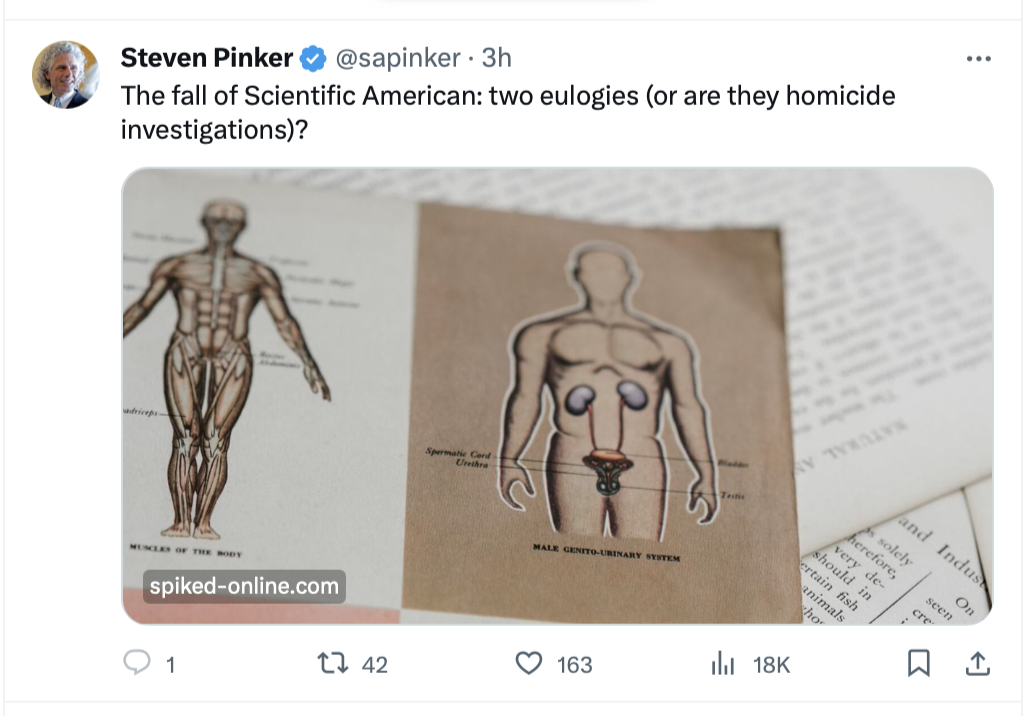When you come across the longstanding magazine, Scientific American, you could be forgiven for assuming that scientific truth would play a pivotal role in its output.
But not any more, it seems. Scientific American, founded in 1845, is the oldest continuously published magazine in the United States. It has previously featured work by Albert Einstein, among others. However, in recent years, it appears to have been taken over by contributors who consider themselves activists first and scientists second. The magazine’s ethos now includes the express aim of ‘sharing trustworthy knowledge, enhancing our understanding of the world, and advancing social justice’ (my emphasis). It has also started to intervene in electoral politics, too. In 2020, Scientific American broke with a 175-year history of non-partisanship to endorse Joe Biden in the US presidential election.
Worst of all, when its articles touch on questions of gender and biological sex, Scientific American seems to have abandoned objective facts entirely, in favour of trans-activist pseudoscience.
As Jonathan Haidt warned, universities (and here, science magazines) can only have one telos. To do otherwise gives rise to a conflict of interest that corrupts the main mission.
If one wants to know what sex is or how many sexes there are, just ask a real life trained biologist, such as my friend Luana Maroja, who has no conflict of interest. She takes pride in being a real-life legitimate biology professor who know that there are two (and only two) human sexes because there are two (and only two) types of human gametes:



James B. Meigs, writing at City Journal: